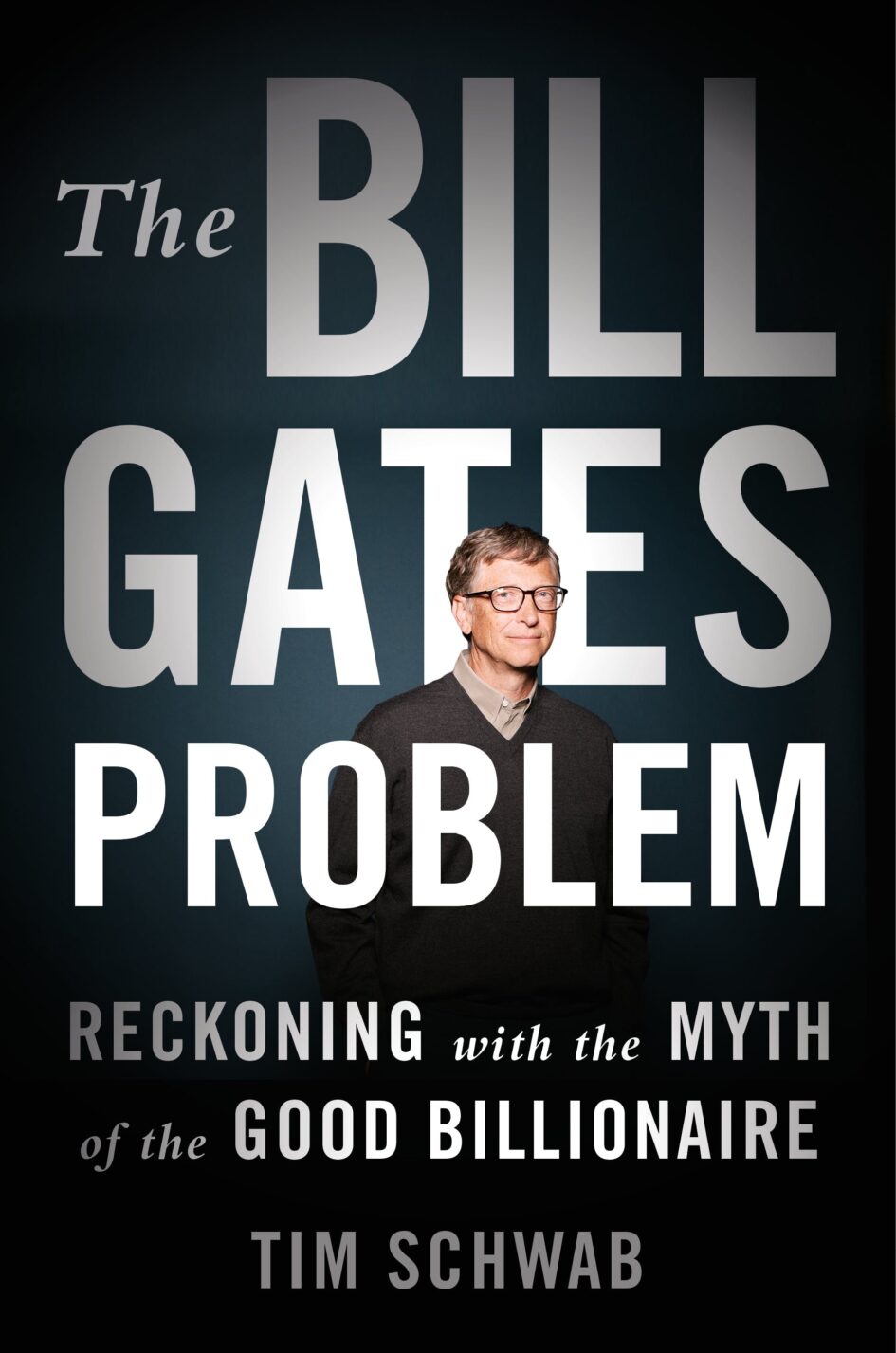Bill Gates and his foundation have had a major impact on Australia, and the nation’s taxpayers have made a major contributions to his various enterprises, whether it be in his roles as vaccine-profiteer-in-chief or climate czar. He has been embraced by both sides of the political aisle.
It’s about time the public woke up to this elaborate betrayal and the interconnectedness between his activities and Australian governance.
As the book’s blurb so accurately puts it, this ground breaking book is a powerful investigation of Bill Gates and the Gates Foundation, showing how he uses philanthropy to exercise enormous political power without accountability
“Through his vaunted philanthropy, Bill Gates transformed himself from a tech villain into one of the most admired people on the planet. Even as divorce proceedings and allegations of misconduct have recently tarnished his public image, the beneficence of the Gates Foundation, celebrated for spending billions to save lives around the globe, is taken as a given.
“But as investigative journalist Tim Schwab shows in this fearless investigation, Gates is still exactly who he was at Microsoft: a bully and monopolist, convinced of his own righteousness and intent on imposing his ideas, his solutions, and his leadership on everyone else. At the core, he is not a selfless philanthropist but a power broker, a clever engineer who has innovated a way to turn extreme wealth into immense political influence—and who has made us believe we should applaud his acquisition of power, not challenge it.
“Piercing the blinding halo that has for too long shielded the world’s most powerful (and most secretive) charitable organization from public scrutiny, The Bill Gates Problem shows how Gates’s billions have purchased a stunning level of control over public policy, private markets, scientific research, and the news media. Whether he is pushing new educational standards in America, health reforms in India, global vaccine policy during the pandemic, or Western industrialized agriculture throughout Africa, Gates’s heady social experimentation has shown itself to be not only undemocratic, but also ineffective. In many places, Bill Gates is hurting the very people he intends to help.
“No less than dark-money campaign contributions or big-business political lobbying, Bill Gates’s philanthropic empire needs to be seen as a problem of money in politics. It is a dangerous model of unconstrained power that threatens democracy and demands our attention.”
A dangerous model of unconstrained power, and a dangerous model for Australia.
The Bill Gates Problem: Reckoning with the Myth of the Good Billionaire delves into the life and influence of Bill Gates, not merely as a tech magnate but as a pivotal figure in global philanthropy through the Bill and Melinda Gates Foundation. Schwab’s narrative challenges the conventional view of Gates as a benevolent billionaire, instead portraying him as a complex character whose actions through his foundation might not always align with the public’s perception of altruism.
Schwab argues that Gates, through his foundation, has positioned himself as a central figure in global health, education, and agricultural policies, often without the transparency or democratic oversight one might expect from entities wielding such influence. The foundation, with its vast resources, acts more like a private equity firm or a venture capitalist, leveraging its power to see confidential business information and gain licensing claims over technologies, which Schwab suggests blurs the lines between philanthropy and profit-seeking.
One of the key criticisms Schwab levels is the foundation’s approach to family planning, where it heavily promotes certain contraceptive methods, potentially sidelining other effective but less profitable options. This approach, according to Schwab, not only influences global health policies but also individual health choices, sometimes with unintended consequences like difficulties in accessing removal of long-term contraceptive implants.
The book also touches on Gates’s personal traits, suggesting that his “unyielding belief in himself” leads to a conviction that he knows best how to solve the world’s problems, which might not always align with the needs or desires of the communities his initiatives aim to help. This perspective challenges the narrative of Gates as merely a well-meaning philanthropist, painting him instead as a figure whose influence might be more about control than charity.
Reviews:
- Kirkus Reviews praises Schwab’s writing for its conversational yet insightful tone, noting how he manages to make complex issues accessible while maintaining a poetic precision in his reflections. The review appreciates Schwab’s critique of Gates’s foundation acting more like a corporate entity rather than a traditional charity, highlighting the lack of transparency and the foundation’s significant influence over global health policies.
- The New York Times describes Schwab’s work as an excoriation of Gates, presenting him not as a reformed monopolist turned philanthropist but as a “power-hungry, narcissistic control freak.” The review underscores Schwab’s argument that Gates’s foundation serves more as a vehicle for his personal influence than a purely altruistic endeavor, questioning the implications of such unchecked power in the hands of an unelected individual.
- The Irish Times labels Schwab’s book as “A lash from the left,” indicating its critical stance against Gates’s methods of philanthropy. The review notes the book’s exploration of how Gates’s initiatives, while aiming for global good, might sometimes overlook local needs or preferences, leading to a form of neo-colonialism in philanthropy. It acknowledges the book’s thought-provoking nature, even if it doesn’t always clinch its arguments, suggesting that Schwab’s work invites readers to reconsider the implications of billionaire-led global initiatives.
Schwab’s The Bill Gates Problem thus serves not just as a biography or a critique but as a broader commentary on the role of billionaire philanthropists in today’s world. It questions the power dynamics at play when such vast wealth is directed towards solving global issues, often without the accountability that comes with public or governmental oversight. Through detailed reporting and a critical lens, Schwab invites readers to look beyond the myth of the good billionaire, urging a more nuanced understanding of Gates’s influence and the broader implications of his actions.
RELATED STORIES



